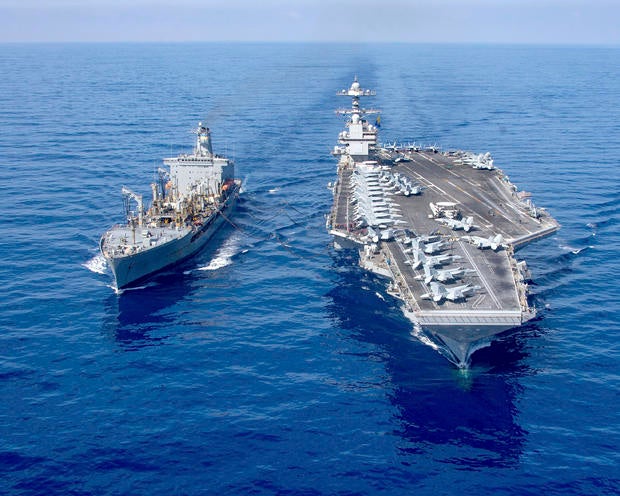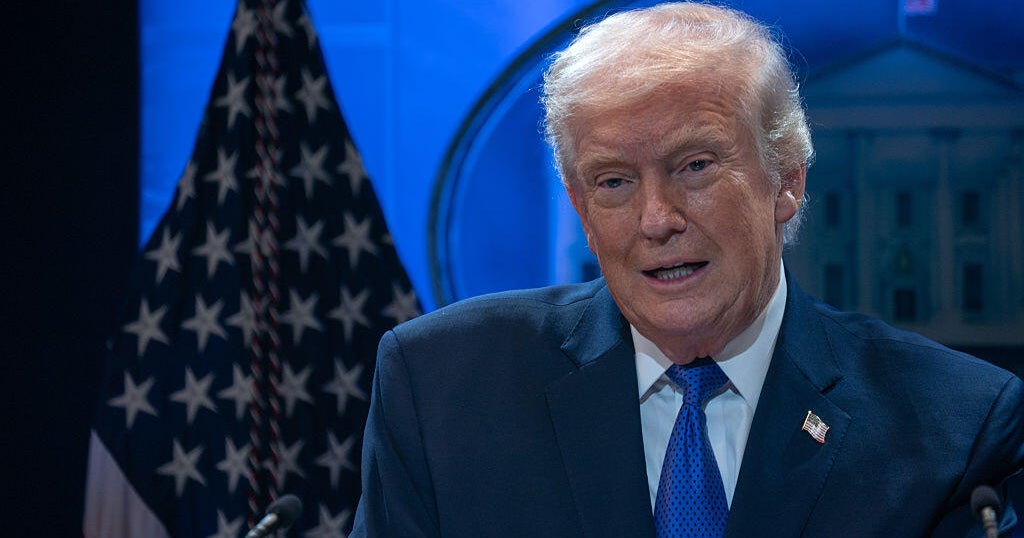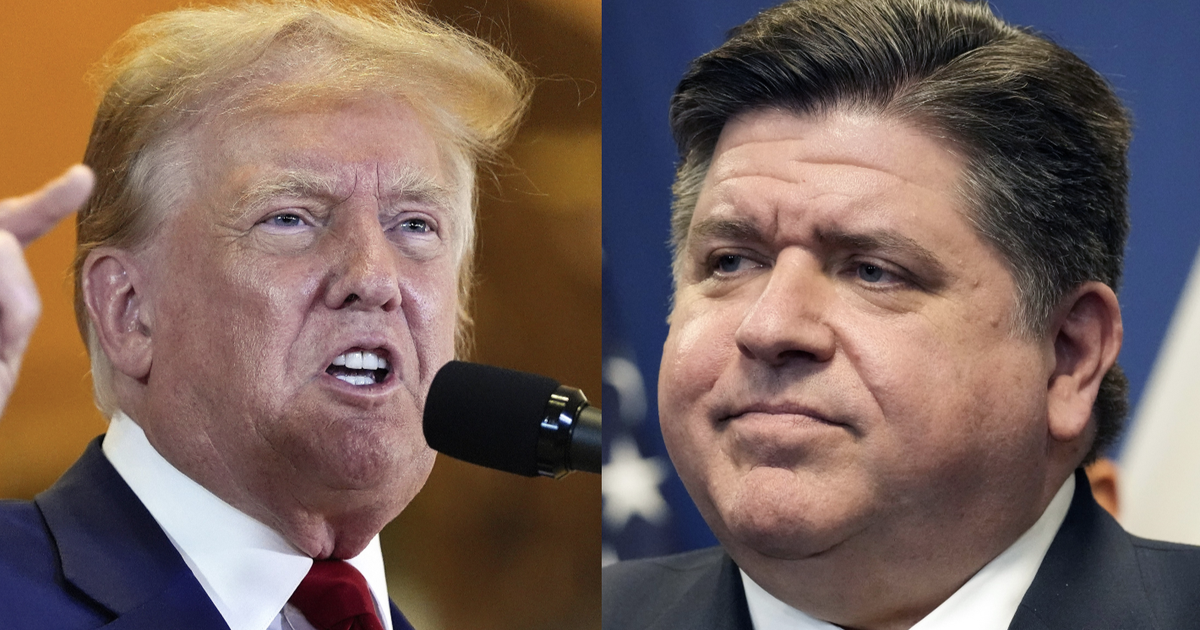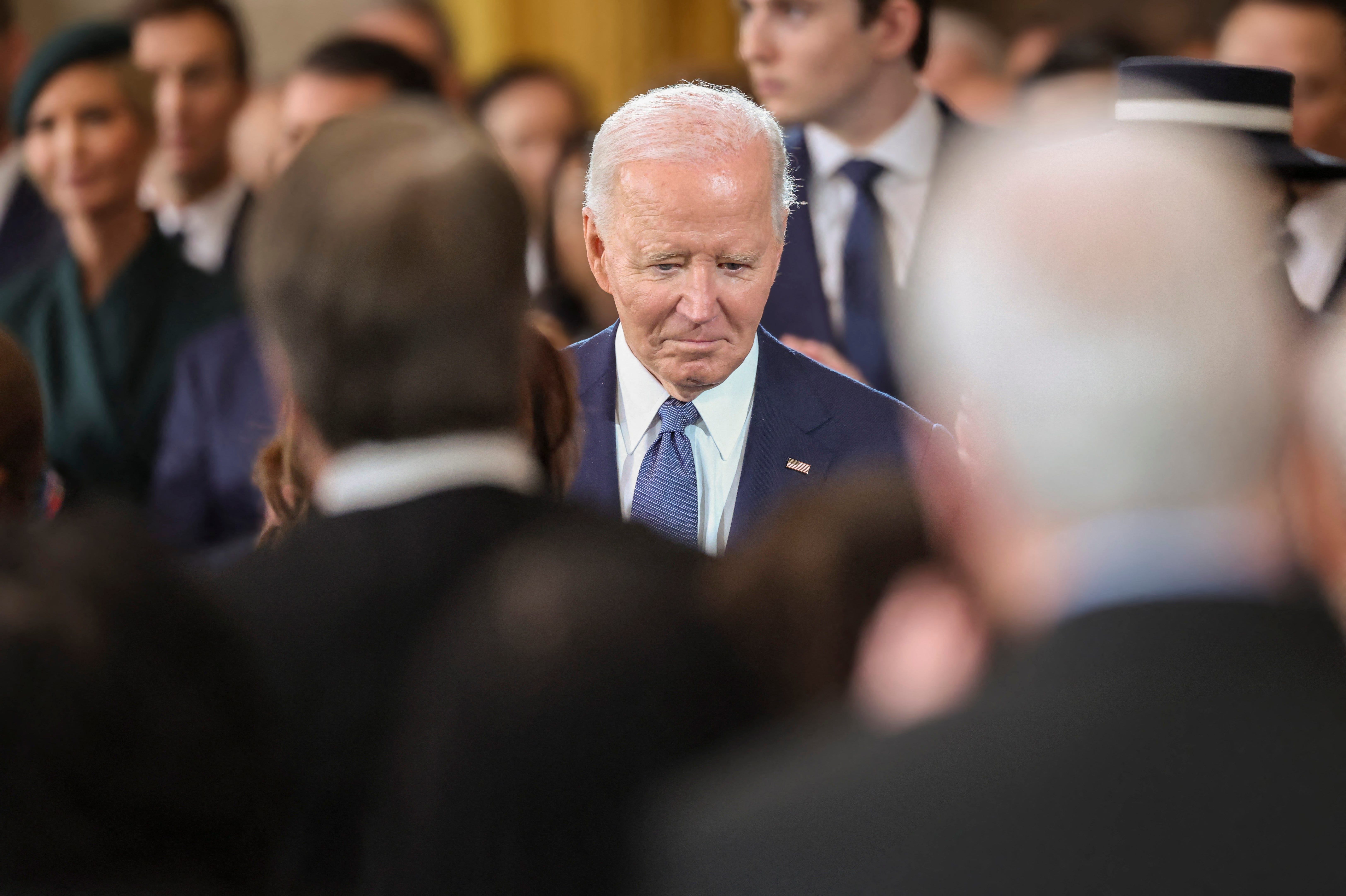Aircraft carriers will be named for George W. Bush and Bill Clinton, Biden announces
President Joe Biden announced Monday that two of the Navy's future aircraft carriers will be named for former commanders-in-chief Bill Clinton and George W. Bush.
"The future USS William J. Clinton (CVN 82) and the future USS George W. Bush (CVN 83) will begin construction in the years ahead," Biden said in a statement issued just a week before he is replaced in office by Donald Trump.
"When complete, they will join the most capable, flexible, and professional Navy that has ever put to sea," Biden said. "They will be crewed by sailors who hail from every corner of the United States, and who will sail these ships into harm's way, defending our interests overseas and our safety here at home."
The United States has a long tradition of naming some of its aircraft carriers — massive warships that are crewed by thousands of sailors and carry dozens of planes — after former presidents.
The latest line of U.S. carriers is named for Gerald R. Ford, and another of the multi-billion-dollar ships bears John F. Kennedy's name — the second time he has been honored in that way. According to the Navy, the Ford-class of aircraft carrier is the first new class in more than 40 years and begins the phased replacement of Nimitz-class carriers.
Clinton — who did not serve in the military — was president from 1993 to 2001, a period that saw U.S. warplanes carry out strikes in Iraq and Yugoslavia, and American troops battle Somali militiamen in the infamous Black Hawk Down incident, among other conflicts.
Bush, who served as a pilot in the Air National Guard, held America's highest office from 2001 to 2009.
His presidency was defined by the so-called "War on Terror" that he launched in the aftermath of the September 11 attacks, a military effort that spanned the globe and included the devastating, long-running wars in Afghanistan and Iraq that left tens of thousands of people dead.
Defense Secretary Lloyd Austin hailed the choice of the names, saying that the ships "will serve as lasting tributes to each leader's legacy in service of the United States."
"Like their namesakes, these two future carriers, and the crews who sail them, will work to safeguard our national security, remind us of our history, and inspire others to serve our great republic," Austin said in a statement.




